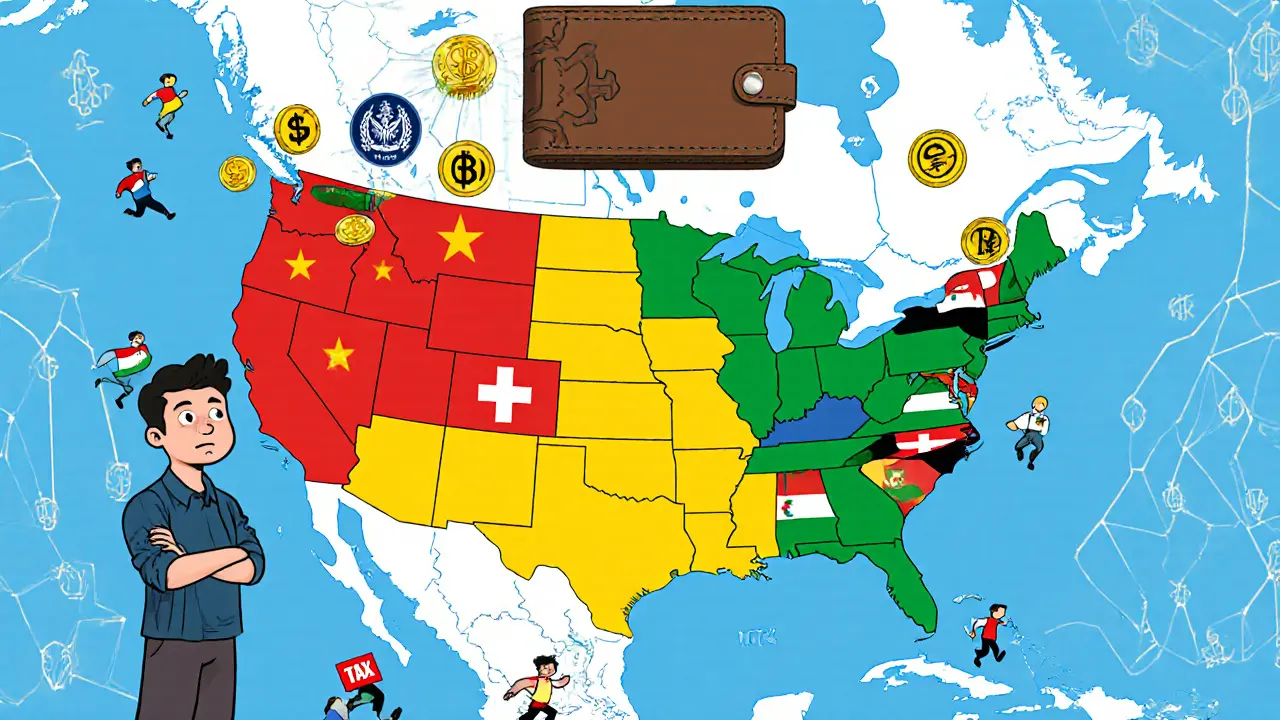Crypto Regulations: What’s Legal, What’s Not, and How It Affects You
When you trade, hold, or spend cryptocurrency, you’re not just interacting with blockchain—you’re navigating a patchwork of crypto regulations, government rules that control how digital assets can be used, taxed, or banned. Also known as digital asset laws, these rules determine whether you can trade freely, pay taxes on gains, or risk fines for using unlicensed platforms. There’s no global standard. What’s legal in the UAE is banned in Tunisia. What’s taxed at 1% in India is ignored in places with no enforcement. If you’re trading crypto, you’re already under regulation—even if you don’t realize it.
Take VASP licensing, a requirement for crypto businesses to register with financial authorities to prevent money laundering. Also called crypto business permits, this isn’t optional in Nigeria, the UAE, or the EU. If a platform claims it’s "unregulated," it’s likely breaking the law—or worse, running a scam. Then there’s crypto tax, the government’s way of claiming a cut from your trades, even if you didn’t cash out. Countries like India charge 30% on every sale, while Vietnam now taxes every transaction at 0.1%, no profit needed. The IRS even hits you with an "exit tax" if you renounce U.S. citizenship and hold crypto. These aren’t suggestions—they’re legal obligations.
And it’s not just about money. The FATF crypto, global standards set by the Financial Action Task Force to combat crypto crime. Also known as AML rules for crypto, these guidelines push countries to track transactions and shut down unlicensed exchanges. When the UAE got removed from the FATF grey list in 2024, exchanges like Binance and Bybit moved in. When Tunisia banned crypto in 2018, traders went underground using P2P and VPNs. These rules don’t just shape markets—they force people to adapt or risk arrest.
You’ll find posts here that cut through the noise: how India’s 1% TDS works, why Vietnam’s new tax catches traders off guard, how Nigeria’s VASP rules force startups to comply, and why the UAE’s regulatory shift made it a crypto hub. You’ll also see what happens when rules are ignored—like in Tunisia’s black-market crypto scene, or when fake exchanges like FutureX Pro pretend to be licensed. Some posts warn you about dead coins and scam airdrops. Others explain how to spot a regulated exchange from a fraud. This isn’t theory. It’s real-world guidance for people who trade, hold, or just want to stay out of trouble.
Whether you’re in a country with clear rules or none at all, understanding crypto regulations isn’t about compliance—it’s about survival. The next trade you make could be legal or illegal depending on where you are. The next tax bill could be a surprise. The next exchange you use could be a trap. Below, you’ll find the facts you need to make smarter moves—without the fluff, without the hype, just what actually matters.

Top 8 Countries with Strictest Crypto Bans in 2026
Discover the top countries with the strictest cryptocurrency bans in 2026. China leads with a total prohibition, while Bangladesh, Algeria, and Bolivia enforce complete bans. India and Nigeria use heavy taxation and banking restrictions. Learn why these nations restrict crypto and how users cope.

Understanding Your Jurisdiction's Crypto Laws and Regulations in 2025
Crypto laws vary wildly by country in 2025. Understand whether your jurisdiction bans, taxes, or welcomes cryptocurrency - and what you must do to stay legal and avoid penalties.
© 2026. All rights reserved.